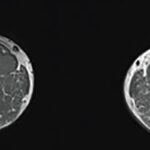A handful of articles on artificial intelligence (AI) have graced the pages of this publication in the past six years, including one by Bharat Kumar, MD, in November 2022. Dr. Kumar highlighted the exciting potential of AI in rheumatology, including machine learning (ML) algorithms for the prediction of response to methotrexate and a predictive model…







